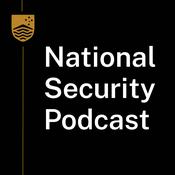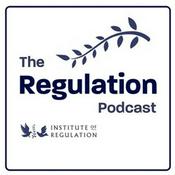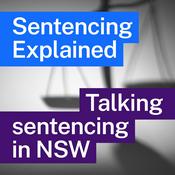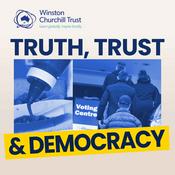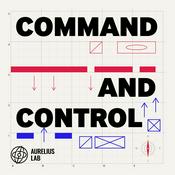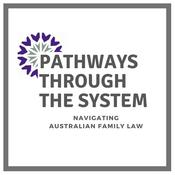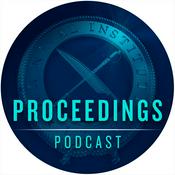63 episodes
- In Part 2 of the episode, Todd Crowley and Colin Gunn unpack how a 28-hour Group 3 platform, the Raider 330, plugs into a wider Indo-Pacific security fabric. They walk through how persistent ISR, sovereign cloud and federated data sharing can lift maritime domain awareness from ad hoc flights to an always-on picture.
The discussion starts with the hard logistics: low-footprint basing, heavy-fuel operations, local manufacturing in South East Queensland and the reality of distributed production lines across the Quad. From there, they move into payloads and data: EO/IR, SAR/MTI, ViDAR and hyperspectral sensors and how edge AI turns terabytes of raw feed into kilobytes of decisions for commanders.
For defence planners and Coast Guard leaders, the core question is tempo. Traditional ISR is episodic: launch, collect, process, act. Colin shows how persistent Group 3 drones, coupled with sovereign cloud and zero-trust data fabrics, give Indo-Pacific agencies continuous coverage, shared anomaly detection and the ability to cue patrols or satellites in seconds. It is a practical path to maritime domain awareness that respects national sovereignty while still supporting a Quad Coast Guard-led picture.
The same architecture carries straight into disaster response and commercial risk. The episode lays out how these Group 3 drones can see through smoke and cloud over bushfires, map cyclone damage, restore basic connectivity and move critical stores when helicopters are grounded. The same feeds and fused analytics can also support shipping risk scoring, fisheries compliance and the protection of energy infrastructure across the region.
If you are responsible for protecting sea lanes, lifting disaster response or planning the next wave of persistent ISR, this conversation gives you a clear model: one architecture, many missions, shared costs.
Find deeper briefs inside Vaxa Bureau. - Colin Gunn argues the centre of gravity for maritime security has shifted. Coast Guards, border agencies, fisheries, aviation and SAR authorities already maintain daily sovereign presence across the Indo-Pacific. They hold sunk infrastructure, they operate in peacetime, and they’re trusted by Pacific partners. That makes them the logical starting point for a shared maritime picture that is persistent, sovereign-controlled, and politically neutral.
The model is blunt: long-endurance Group 3 uncrewed aircraft such as the Raider 3-30 networked into a federated cloud where each nation keeps its own data keys but shares insights. Not raw feeds. Not intelligence giveaways. Just the picture that matters. The result is continuous Indo-Pacific maritime awareness that can be stood up within months, not years, and expanded across the Pacific without provoking anyone.
They walks through what’s driving the shift: compressed warning times, readiness gaps across kit and personnel, and the strategic discomfort of waiting for AUKUS platforms while regional coercion intensifies. He also explains why Australia’s gap in Group 3 ISR and logistics is now unavoidable and how Coast Guard-first adoption could ease pressure on high-end assets like P-8s and Tritons.
The conversation also covers the protected-logistics push coming out of the United States, how operator-led design changes capability cycles, and where early traction for Group 3 systems is appearing from the U.S. services to South America and the wider Indo-Pacific.
If your remit includes maritime security, border protection, or regional partnerships, this episode gives a clear, executable pathway to lift awareness using capabilities your agencies already have.
Find deeper briefs inside Vaxa Bureau. #60 Weapon-Grade Carbon: Breaking the World's Quietest Dependency | Mark Livings - Part 2
25/11/2025 | 43 mins.Part 2 of this Intelligence Optimised episode goes from “carbon is everywhere” to “carbon decides who holds power” - in energy, defence, health and the wider Indo-Pacific.
Todd Crowley continues the conversation with Mark Livings, Co-Founder and Managing Director of Sweet Atoms, to unpack how advanced carbon materials move from lab slide to sovereign capability. They break down super activated carbon for energy storage, hard carbon anodes that double capacity, flexible glassy carbon coatings that laugh at re-entry heat, and a new cathode material built from transition metals instead of rare earths.
For defence and energy planners, the stakes are clear. Sovereign carbon underpins sovereign energy storage. Without it, lithium exposure, hydrogen leakage and foreign-controlled supply chains limit what Australia and its AUKUS partners can field, fuel and defend. With it, you can build batteries that carry more energy in a smaller footprint, plate submarines and missiles with stealthy, anti-fouling coatings, protect troops with lighter PPE, and keep critical sensors alive in extreme environments.
The conversation also tackles how to grow this as a genuinely sovereign industry. Mark outlines a pathway from deep-tech R&D in Brisbane through pilot plants to export-ready advanced manufacturing, tied to Australian universities, public capital and strategic OEM partners. He sketches how an AUKUS materials corridor for advanced carbon could work in practice, and how IP is protected with a mix of patents and trade secrets.
Across energy storage, critical materials, hydrogen, medical filtration and defence supply chains, the message is blunt: sovereign carbon is moving into the same category as critical minerals. Leaders who ignore it risk finding that their grids, fleets and compute all depend on someone else’s feedstock.
If you shape policy, budgets or capability in this space, this episode will help you see where carbon materials fit in your next brief, program or investment round. Find deeper briefs inside Vaxa Bureau.#59 Weapon-Grade Carbon: Breaking the World's Quietest Dependency | Mark Livings - Part 1
18/11/2025 | 35 mins.Advanced carbon is one of the quiet foundations of modern capability - running through batteries, sensors, drones, soldier systems, grid storage and data centres. More than 90 per cent of it comes from China. Part 1 of this episode of Intelligence Optimised looks directly at that dependence and explores what real sovereignty could look like for Australia and the wider Indo-Pacific.
Todd Crowley speaks with Mark Livings, Co-Founder & Managing Director of Sweet Atoms, whose team converts agricultural waste into high-performance carbon. Their work sits at the intersection of energy storage, critical minerals and supply-chain resilience. For defence and energy planners, the message is simple: without sovereign carbon, there’s no sovereign energy, and without sovereign energy, there’s no sovereign compute, mobility or industry.
The conversation traces the scale of the problem - from the spike in global demand for batteries to the consequences of leaning on foreign industrial systems for essential materials. Mark outlines how Australia’s agrifood sector produces enormous volumes of biomass waste, much of which can be valorised into advanced carbon suitable for batteries and other strategic uses. It’s a rare alignment of national assets: strong agriculture, abundant waste streams, and a pressing need for domestic materials capability.
The conversation covers:
✔️ Energy storage becoming a core industrial input across sectors
✔️ Grid stability pressures and rising portable-power demand
✔️ Geopolitical friction straining energy-related supply chains
✔️ Local manufacturing potential by processing biomass at the source
For leaders in energy, defence and government, the episode offers a clear view of what’s at stake: Australia’s ability to power its own infrastructure, support partners in the region and shield critical systems from offshore shocks. It’s a practical conversation about pathways, not promises.
Find deeper briefs inside Vaxa Bureau.- Young Australian men are carrying more isolation, welfare reliance and aimless grind than many leaders realise - and that has direct consequences for workforce readiness and national resilience. In this episode of Intelligence Optimised Podcast, host Todd Crowley sits down with Lachie Stuart, founder of The Man That Can Project and former professional rugby player, to explore how purpose, responsibility and mateship rebuild capability at the individual and national level.
Drawing on lived experience from elite sport to men’s groups, Lachie breaks down a practical “resilience loop”: set a clear North Star, make the hard choice that moves you towards it, and stack small wins until confidence catches up. He explains why resilience must be outcome-specific, how honest role models across work, family and health reshape identity, and why real mateship is inconvenient service - the kind that turns up, stays late and tells the truth. Todd brings the policy and national-security lens, connecting these personal shifts to boardroom priorities: safer crews, steadier teams and a stronger leadership pipeline across defence, government and critical industries.
The conversation covers:
✔️ Playing through setbacks when the goal matters; language, culture and isolation shocks from time overseas;
✔️ The slide into booze and distractions when purpose is missing;
✔️ The turnaround powered by accountability, routine and community.
✔️ The data picture - rising welfare reliance and loneliness and points to interventions that work: early work exposure, rites of passage, activity-led catch-ups, and environments that reward contribution over posturing.
For leaders, the brief is clear. Audit where your people are at. Create training grounds, not waiting rooms. Pair young men with credible mentors. Bake in small, repeatable challenges that build competence and pride. Australia’s future strength in the Indo-Pacific will come from men who are trained to serve something bigger than themselves - at home, on site and in uniform.
Find deeper briefs inside Vaxa Bureau.
More Government podcasts
Trending Government podcasts
About Intelligence; Optimised Podcast
In this series our Indo-Pacific experts navigate the complexities of safeguarding our present and fortifying our future in these uncertain times. Our focus is on delivering expert analyses and insights under the national security umbrella, to help you: "Be Ready for Today. Prepared for Tomorrow." This series is crafted for a discerning audience, including defence professionals, policymakers, academics, technology experts , logistics and supply chain managers, public health officials, and food and agribusiness purveyors.It's designed for those who seek to stay ahead of the curve in understanding and implementing the cutting-edge strategies and technologies that define global security today and shape its evolution tomorrow.The “Vaxa Bureau - Intelligence; Optimised Podcast” is a part of the Vaxa Grow Series and brought to you by the Vaxa Bureau team. Find out more: https://vaxabureau.com/
Podcast websiteListen to Intelligence; Optimised Podcast, Strict Scrutiny and many other podcasts from around the world with the radio.net app
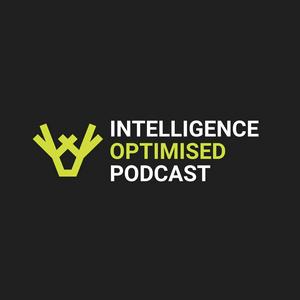
Get the free radio.net app
- Stations and podcasts to bookmark
- Stream via Wi-Fi or Bluetooth
- Supports Carplay & Android Auto
- Many other app features
Get the free radio.net app
- Stations and podcasts to bookmark
- Stream via Wi-Fi or Bluetooth
- Supports Carplay & Android Auto
- Many other app features


Intelligence; Optimised Podcast
Scan code,
download the app,
start listening.
download the app,
start listening.







